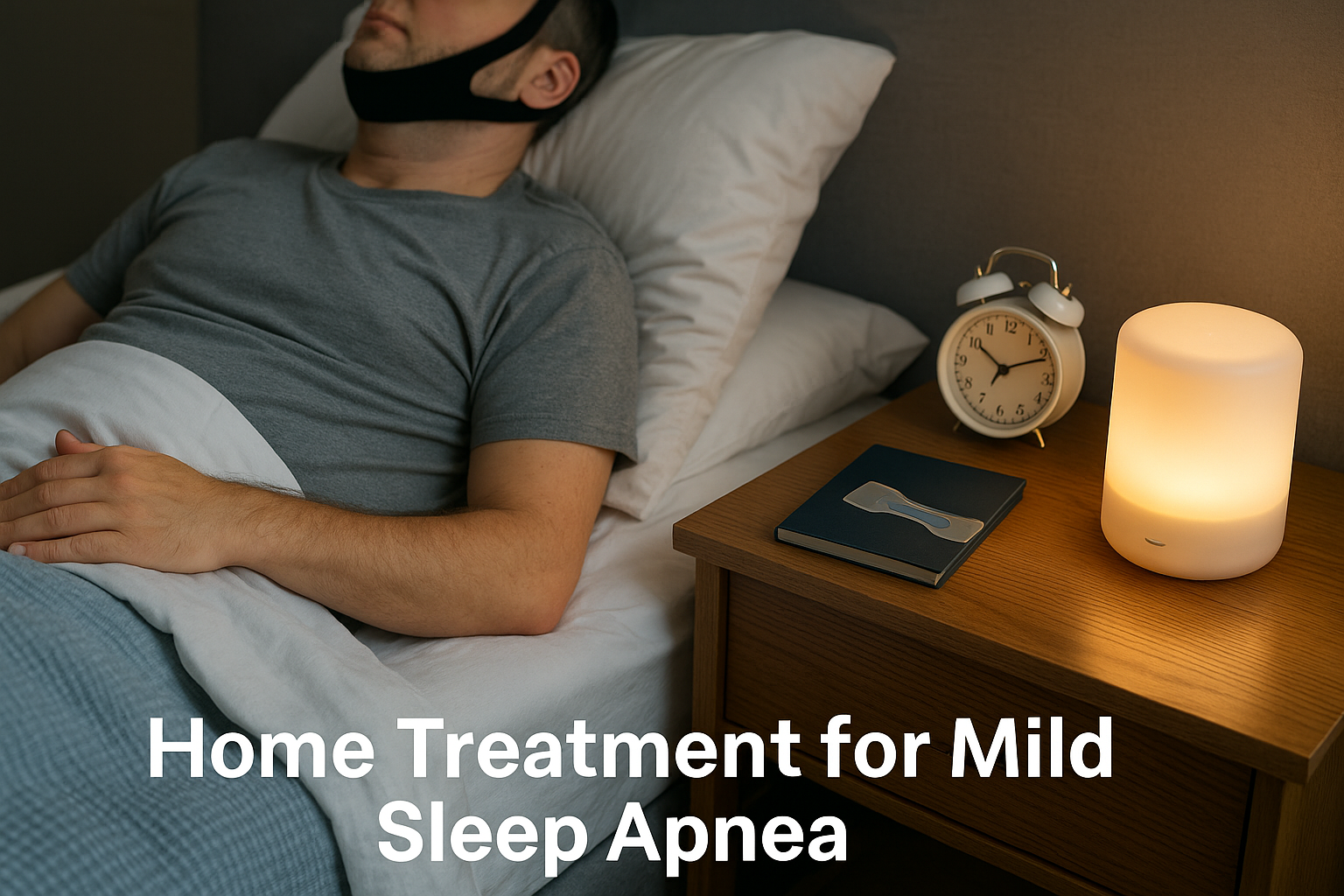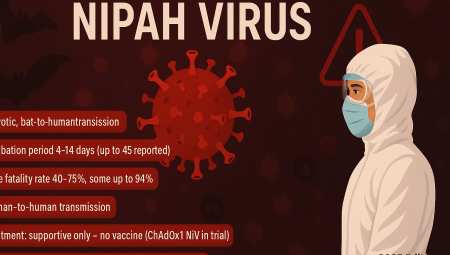Sleep apnea is more than just loud snoring—it’s a serious medical condition that affects your breathing during sleep, often leading to fatigue, memory problems, and even cardiovascular issues. But if you’ve been diagnosed with mild sleep apnea, you may not need a CPAP machine right away. In fact, many people manage and reverse mild cases at home through science-backed lifestyle changes and natural therapies.
This in-depth guide will walk you through the most effective home treatments for mild sleep apnea, with expert insights and real-world solutions.
🎯 Who This Article Helps
This content is designed for:
-
Adults aged 25–60 with mild OSA (Obstructive Sleep Apnea)
-
Health-conscious professionals, digital workers, and caregivers
-
People seeking CPAP alternatives or wanting to avoid surgery
-
Individuals with snoring issues, low energy, or disrupted sleep patterns
-
U.S., U.K., Canada, and Australia audiences focused on sleep health
💡 What Are the Best Home Treatments for Mild Sleep Apnea?
The best home treatments for mild sleep apnea include weight loss, positional therapy, nasal breathing techniques, using a humidifier, mouth exercises, and limiting alcohol. These methods can significantly reduce symptoms and improve sleep quality without a CPAP machine
🧠 Understanding Mild Sleep Apnea
Mild sleep apnea is diagnosed when you experience 5–15 apnea episodes per hour during sleep. These episodes occur when throat muscles relax, blocking airflow temporarily. Common symptoms include:
-
Snoring
-
Daytime sleepiness
-
Morning headaches
-
Waking up gasping
-
Restless sleep
🛏️ 12 Proven Home Treatments for Mild Sleep Apnea
1. Weight Loss and Body Fat Reduction
Extra weight around the neck and abdomen increases airway obstruction during sleep. Even a 5–10% weight reduction can significantly reduce apnea events.
2. Sleep Position Therapy (Positional Training)
Sleeping on your back worsens apnea due to gravity pulling tissues into the airway. Try:
-
Side sleeping with a body pillow
-
Tennis ball technique (sewing a ball into your back shirt)
-
Specialized anti-snore pillows
3. Nasal Breathing Enhancement
Nasal congestion leads to mouth breathing, worsening OSA. Improve nasal airflow by:
-
Daily saline rinses
-
Nasal strips (Breathe Right)
-
Antihistamines if allergies are involved
4. Mouth and Throat Exercises (Oropharyngeal Myofunctional Therapy)
Strengthening oral muscles improves tongue positioning. Practice:
-
Gargling loudly
-
Singing vowel sounds
-
Chewing on a soft rubber tube
Do these exercises 10–15 minutes daily.
5. Limit Alcohol and Sedative Intake
Alcohol relaxes throat muscles and delays brain response to airway obstruction. Avoid:
-
Drinking 3–4 hours before bed
-
Using benzodiazepines or sleep aids unless prescribed
6. Use a Humidifier in Your Bedroom
Dry air irritates nasal passages and worsens snoring. Benefits of using a humidifier include:
-
Reduced congestion
-
Better airflow
-
Fewer awakenings
7. Avoid Smoking
Smoking inflames upper airway tissues, narrowing your breathing passage. Quitting can:
-
Improve oxygen intake
-
Decrease night-time coughing
-
Enhance sleep cycles
8. Herbal Support (Under Supervision)
Certain natural remedies may support airway function. Examples:
-
Valerian root: Helps reduce anxiety and muscle tension
-
Magnesium glycinate: Relaxes muscles
-
Ashwagandha: Improves stress resilience
Always consult your doctor before using supplements.
9. Maintain a Consistent Sleep Schedule
Going to bed and waking up at the same time regulates your circadian rhythm and promotes deeper sleep cycles. Aim for:
-
7–9 hours nightly
-
Sleep between 10 PM – 6 AM for optimal hormone cycles
10. Avoid Heavy Meals and Caffeine Before Bed
Digestive activity can interrupt deep sleep and contribute to apnea. Follow this rule:
-
No food 2 hours before sleep
-
No caffeine after 2 PM
11. Elevate Your Head Slightly
Raising your head 4–6 inches reduces pressure on your airway. Use:
-
Adjustable bed base
-
Extra pillow (but not too thick)
12. Monitor Sleep with Wearables or Sleep Apps
Use technology like:
-
Oura Ring
-
Fitbit with SpO2 tracking
-
SnoreLab app
Track changes in sleep apnea severity over time.
⚠️ When to Seek Medical Support
Home treatment is great for mild cases, but if you experience:
-
Severe fatigue
-
Worsening apneas
-
High blood pressure
It’s time to consult a sleep specialist for a sleep study or CPAP trial.
💼 Pro Tips: Expert Advice for Managing Mild Sleep Apnea at Home
-
Record yourself sleeping to hear snoring patterns.
-
Pair mouth taping with nasal rinses to train nose breathing.
-
Keep bedroom cool and dark for melatonin production.
-
Use a sleep diary to note when you wake up and how you feel.
-
Try yoga or deep breathing before bed to reduce stress-induced apnea.
-
Avoid screen time 1 hour before sleep to improve REM quality.
❓ FAQ: Frequently Asked Questions
Can you fix mild sleep apnea at home?
In many cases, yes. Lifestyle changes like weight loss, improved sleep posture, and nasal breathing training can reverse or reduce symptoms.
Is mild sleep apnea dangerous?
Though not as risky as severe OSA, mild sleep apnea still increases the risk of hypertension, insulin resistance, and poor daytime focus.
How do I know if my home treatment is working?
Improvement in sleep quality, fewer awakenings, reduced snoring, and better energy during the day are positive signs. Sleep trackers can help validate progress.
Does everyone with sleep apnea need a CPAP?
Not necessarily. Mild cases can often be managed without CPAP, especially with effective home interventions.
Are anti-snore devices effective for mild sleep apnea?
Some devices like tongue stabilizers and mandibular advancement devices may help, but results vary by person. They’re worth trying under supervision.
💬 Have You Tried Any Natural Remedies for Sleep Apnea?
We’d love to hear from you!
👇 Share your experience, success stories, or questions in the comments below.
Your tip might help someone else sleep better tonight.



